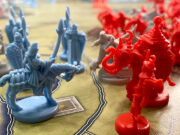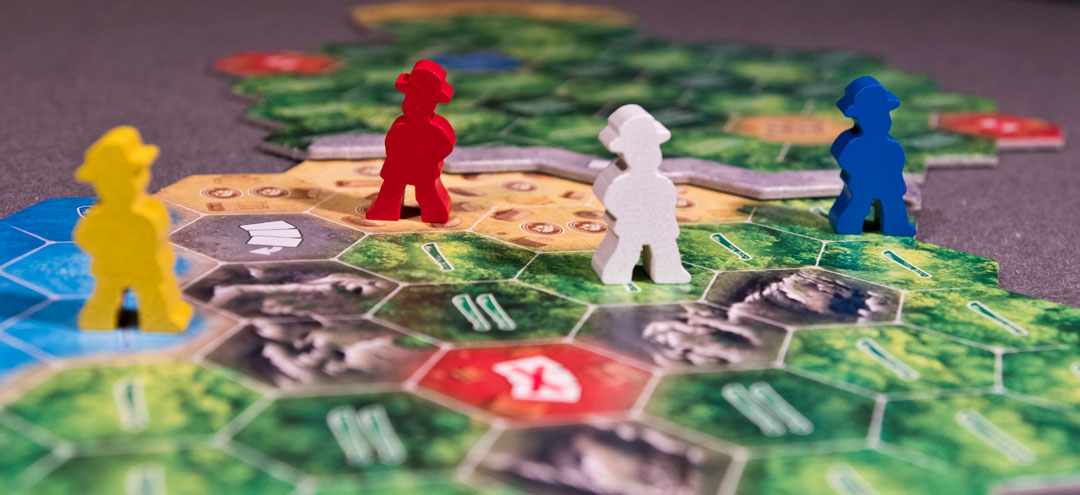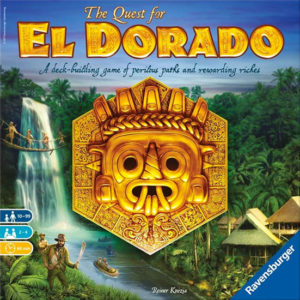 One of the most common ways people sum up a game (and indeed the same way Board Game Grow does it) is to mention the primary mechanisms in a game. For example, a press-your-luck, dice rolling game might immediately conjure visions of Yahtzee and other derivative games. Unfortunately, this can also have the effect of turning noses in the air when a particular mechanism is mentioned.
One of the most common ways people sum up a game (and indeed the same way Board Game Grow does it) is to mention the primary mechanisms in a game. For example, a press-your-luck, dice rolling game might immediately conjure visions of Yahtzee and other derivative games. Unfortunately, this can also have the effect of turning noses in the air when a particular mechanism is mentioned.
This deserves mentioning because the game reviewed here has two of the mechanisms some gamers love to hate. The Quest for El Dorado is a deck building race game set in the wilds of a South American jungle. Two to four players will be acquiring cards representing useful resources or personalities and use them to navigate the various terrain types.
Gameplay Overview:
For the setup, a tableau of purchasable cards is laid out off to the side while a large hexagon-filled map is constructed. Player meeples sit at one end of the map while the golden city, their destination, sits at the other. Players receive starter decks, and the race begins.
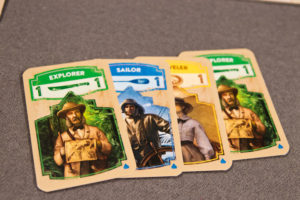
On a turn, unlike other deck builders, players may play as many or as few cards as they wish. Each card played can be used for movement on the map or for purchasing other cards. For example, a green card with two machetes on it can be used to cross a two-machete space or two one-machete spaces. Different card types crossing different space types. That same card can also be used as 1/2 a coin. Other coin type cards get their full value.
A player’s collective coin value of cards played can be used toward a single purchase on a turn. Players could acquire better movement cards, cards to allow them to cull their deck, and even cards to give them more purchase options. Only the cards in the bottom row of the tableau can be purchased.
When a stack of cards from the bottom row of the tableau is empty, a player’s next purchase can now come from any card in the tableau. That stack of cards is then moved to the bottom row thus filling the empty spot.
As players proceed purchasing and playing cards, the first player to reach one of the three final spaces in El Dorado wins.
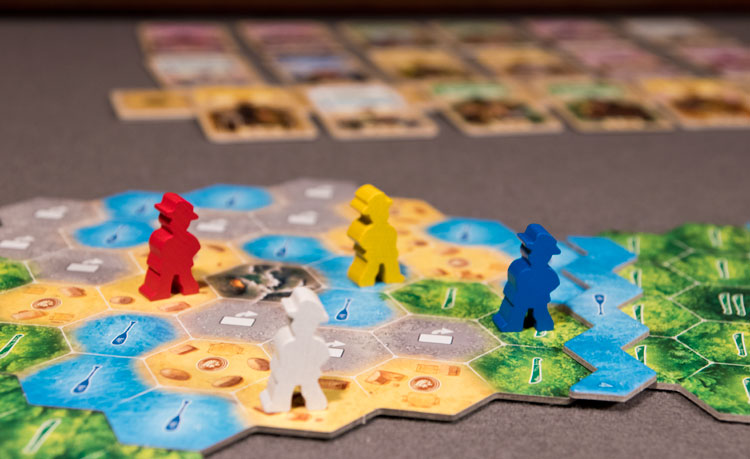
Game Experience:
Once again, from the game’s short label of mechanisms, and even from the further explanation of the mechanisms in play, nothing seems revolutionary or attractive. If any reader has abandoned this review after the overview, Board Game Grow owes you an apology that our review thoughts aren’t stated earlier. The Quest for El Dorado is an excellent game.
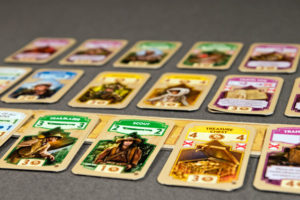
Dominion and some of its descendants have exhausted certain players’ appetites for deck building games, but they should certainly rethink those cravings for The Quest for El Dorado. Reiner Knizia has taken the foundations of card play-cum-recycle to another expected and appreciated strategic level. The choices between board play, planning ahead, and the option to hold on to cards from turn to turn are all logical extensions of the deck building formula when map elements are added. There aren’t many other games that make it as accessible as this one.
The other element that calls out for attention are the movement and blocking options available in the game. Since each explorer on the board completely blocks the movement of other players into that space, there would seem to be plenty of room to move around. In fact, it’s necessary at times to intentionally not move to delay an opponent’s movement options. If they don’t have the right cards in hand, they’re stuck. This level of tactics is incredibly enjoyable and one of the main things that keeps the feeling of each play fresh.
If there are any negatives, it’s only in the realm of wanting more and not getting it. There are a decent number of card types, but players will be burning through those quickly. It would have been much more enjoyable had there been optional card types that could be swapped in, thereby causing card choices to be different from game to game.
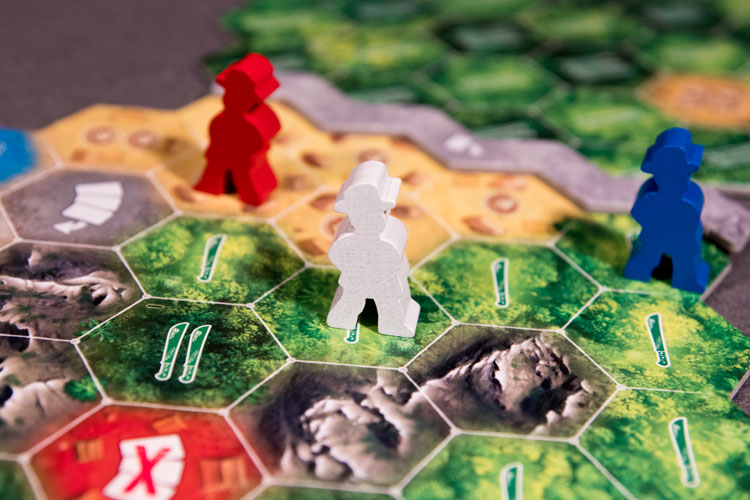
Final Thoughts:
It’s completely understandable how The Quest for El Dorado was nominated for one of the top German board game prizes and Reiner Knizia shows why he’s one of the most noted game designers. Even with borrowed mechanisms, The Quest for El Dorado stands on its own and makes players want more.
Final Score: 4.5 Stars – Despite a fixed set of cards to access, there’s strategic deck-building and fun racing aplenty along the road to El Dorado.
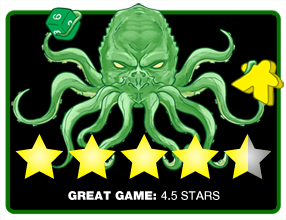 Hits:
Hits:
• Card planning
• Map tile path creation
• Movement tactics
Misses:
• Card selection replay value




